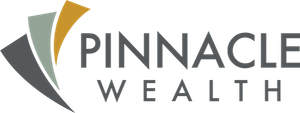Written by Connor Engbers, Wealth Advisor
If you have paid attention to the news recently, you probably heard about the current “crisis” involving student loan debt. With constant talks of student loan repayment and forgiveness and the rising cost of education, debt is piling on the younger generation. And here comes another set of graduates entering the workplace with an outrageous amount of debt in May.
Statistics from the class of 2018’s loan totals have been released. 69 percent of college students in the class of 2018 graduated with an average debt of $29,800. On top of this, 14 percent of parents of the class of 2018 took out an average of $35,600 in Federal Parent PLUS Loans. The most staggering statistic: Americans owe over 1.56 trillion in student loan debt, spread out over 45 million borrowers.
Let’s be honest, debt can be frightening and straight up depressing. In a recent survey, 61 percent of respondents said they feared their debt is spiraling out of control, and 70 percent reported headaches due to the stress from loan debt.
So, how can you reduce that stress? How can you pay down your student loans effectively? Well, let’s look at a few of the best options.
Consolidation
As soon as I graduated, my inbox filled with offers to consolidate my student loans. These letters explain if you have multiple student loans with different interest rates, it’s possible to have them combined for a fixed interest rate based on your previous loans rates.
The consolidation is free, and while it doesn’t reduce the loans per se, it lowers the interest that will be due. Also, if you were making two separate payments, you now only need to make the one total loan payment after consolidation. This is an effective option for repaying student loans if executed properly. It puts more money toward the principal rather than the higher interest that has accrued over the duration of your loan.
Loan Repayment programs
This program is not offered to everyone. If you qualify, find a job that will help you repay by applying for public service and/or teaching positions. These plans can cap your loan payments at a percentage of your monthly income.
Hopefully, businesses will develop an option for an employer match on loans but until that day comes this public service/teaching option remains available only to those who qualify. These repayment programs are not always the best option to pay your student loans effectively – at the end of the day, they often elongate the time of the loan. Therefore, be wary when approaching this plan, do your research and make sure it’s the best decision.
Tax Deductions and Credits
Taxes, contrary to most opinions, can be beneficial! If you are paying off student loans, you are eligible for a deduction up to $2,500. This deduction can be taken even if you do not itemize.
There are also credits available if you’re currently paying tuition, and it is worth confirming you are taking these credits with your accountant.
Another way to use taxes to your advantage is to use your refund as a payment. Extra cash should immediately be applied to student loans.
Budgeting (the Coffee Lesson)
Personal budgeting is the easiest and possibly most effective way to pay down student debt. With a budget and cutting excessive costs, I was able to pay off $14,000 in less than one year. With structure, it’s easier than you might think to raise funds to pay off loans.
An example: Kevin O’Leary, the Shark Tank investor, refuses to give any of his hard-earned dollars to coffee shops. Instead, he makes his coffee at home. A Tall (12oz) black coffee from Starbucks is $2.10. If you purchase one every work day, that equals $550.20 a year. (262 workdays x 2.10). If you buy Starbucks ground coffee (12 oz bag) from a grocery store it is $7.99, and you can get roughly 46 cups of coffee from a bag.
For continuity, if we make coffee once per work day, we get the following:
- 262 workdays/46 cups = 5.695 12oz bags a year
- 695 x $7.99 = $45.50
- $550.20 – $45.50 = $504.70
Therefore, in cutting the daily coffee from Starbucks, and brewing it at home you could save about $504.70 per year. This is why budgeting is so important. Small, useless expenses impede your ability to effectively pay back your loans and become financially free.
Looking at the Big Picture
That being said, student loans can be a burden, but with proper research and commitment to budgeting, they can shrink faster than you think. If you need help budgeting, talking through your debts and stresses, or just want to understand more about finances don’t hesitate to contact us.
As a Wealth Advisor, I believe it’s my job to be a teacher as well as a guide to where you would like to be financially. Remember, I just went through this process as well, and there’s no better guide than one who’s been there.
For a comprehensive review of your personal situation, always consult with a tax or legal advisor. Neither Cetera Advisor Networks, LLC nor any of its representatives may give legal or tax advice.
Sources:
“A Look at the Shocking Student Loan Debt Statistics for 2019.” Student Loan Hero, 4 Feb. 2019, studentloanhero.com/student-loan-debt-statistics/.
Griffin, Riley. “The Student Loan Crisis Is About To Get Worse.” Bloomberg, 17 Oct. 2018, 3:00AM, www.bloomberg.com/news/articles/2018-10-17/the-student-loan-debt-crisis-is-about-to-get-worse.
Insler, Shannon. “The Mental Toll of Student Debt: What Our Survey Shows.” Student Loan Hero, 7 Sept. 2017, studentloanhero.com/student-loan-debt-statistics/.
It., CNBC Make. “Why Kevin O’Leary Refuses To Spend His Money On Fancy Coffee | CNBC Make It.” YouTube, YouTube, 4 Dec. 2017, www.youtube.com/watch?v=56XYThTXgOQ.
Lockert, Melanie. “How to Get a Student Loan Tax Deduction.” Student Loan Planner, 20 Dec. 2018, www.studentloanplanner.com/student-loan-tax-deductions/.


